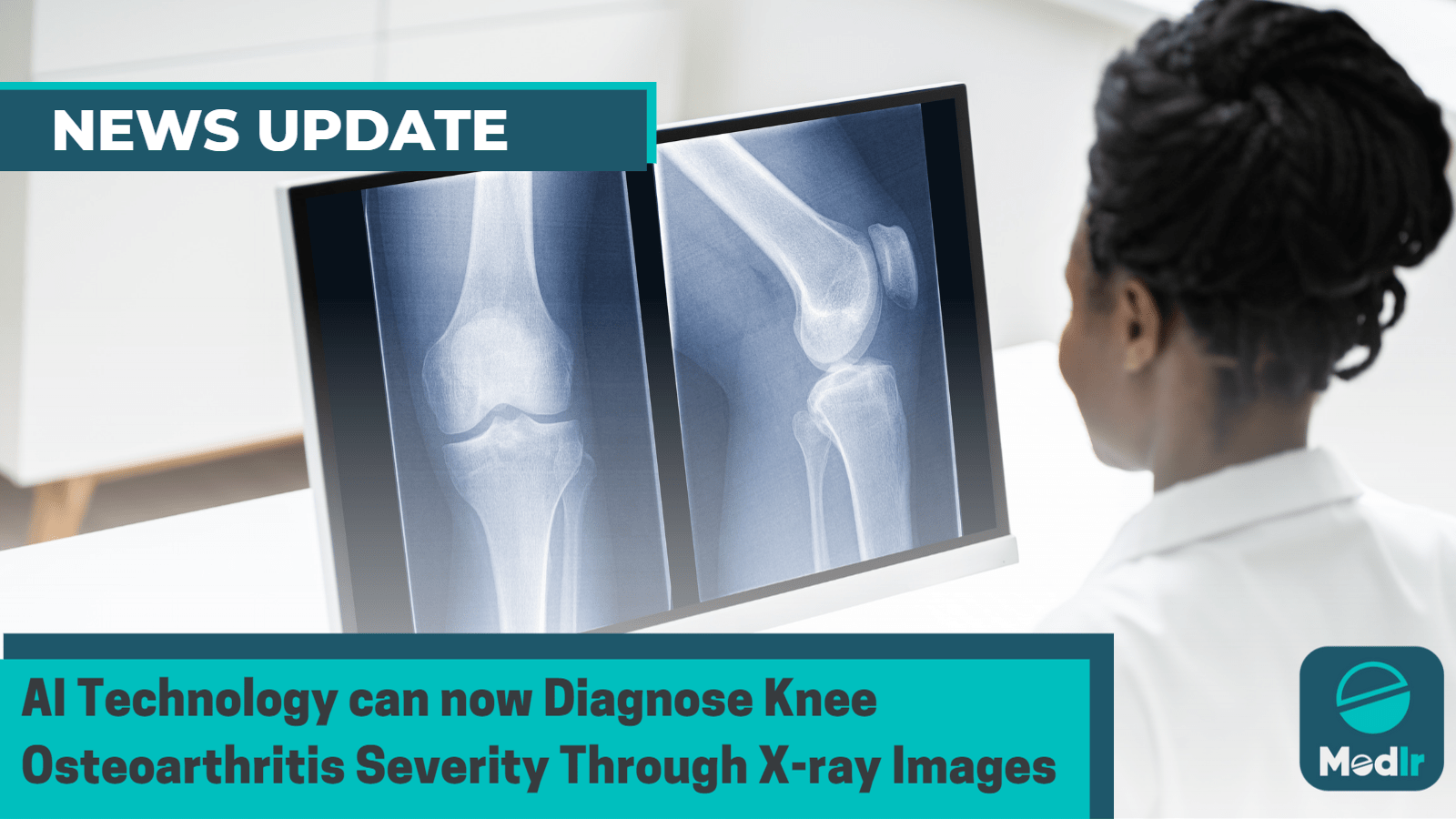AI Technology can now Diagnose Knee Osteoarthritis Severity Through X-ray Images
Written by Shaveta Arora
IIT Guwahati researchers develop OsteoHRNet, an AI-based model that accurately predicts knee osteoarthritis severity from X-ray images, aiding early diagnosis and remote assessment.

The Indian Institute of Technology Guwahati researchers have developed a Deep Learning (DL)-based framework called OsteoHRNet, which automatically assesses the severity of Knee Osteoarthritis (OA) from X-ray images. This AI-based model enables the detection of the disease's severity level and assists medical practitioners remotely in achieving a more accurate diagnosis. Researchers have actively been working on enhancing the automatic detection of knee osteoarthritis from X-ray images or radiographs in order to assist clinical evaluation.
Dr. Palash Ghosh, Assistant Professor in the Department of Mathematics at IIT Guwahati, discussed the Knee OA prediction model, stating that -
“Compared to others, our model can pinpoint the area which is medically most important to decide the severity level of knee osteoarthritis thus helping medical practitioners detect the disease accurately at an early stage.”
The proposed approach does not involve directly plugging in popular deep models. Instead, the AI-based model uses an efficient Deep Convolutional Neural Network (CNN), which is an algorithm commonly used in image recognition. This model predicts the severity of knee OA based on the Kellgren and Lawrence (KL) grading scale, approved by the World Health Organization (WHO), which ranges from grade 0 (low severity) to grade 4 (high severity). The model is constructed upon the High-Resolution Network (HRNet), one of the most recent deep models, to effectively capture the multi-scale features present in knee X-rays.
Prof. Arijit Sur from the Department of Computer Science and Engineering at IIT Guwahati commented on the potential applications of this work, stating that-
“Although simple, the proposed model may be a good starting point for analyzing inexpensive radiographic modalities such as X-rays. Our group is currently focusing on how efficient Deep Learning based models can be designed so that we can work on inexpensive and easy to available modalities such as very low-resolution radiographic images or even photos taken from radiographic plates by a smartphone”
The team is actively working on reconfiguring these models to enable their deployment on resource-constrained devices. This will allow medical professionals to easily obtain an initial but accurate diagnosis. The goal is to address the severe shortage of skilled personnel in this field, particularly in rural India.
The research, conducted by Rohit Kumar Jain, an MTech Data Science graduate student, under the joint supervision of Prof. Sur and Dr. Ghosh, has been accepted for publication in the journal Multimedia Tools and Applications. The research team also includes former Ph.D. students of Prof. Sur at IIT Guwahati, Dr. Prasen Kumar Sharma and Dr. Sibaji Gaj (currently a research fellow at Cleveland Clinic, Ohio, USA).
Resource - https://www.expresshealthcare.in/news/researchers-develop-ai-based-model-to-predict-knee-osteoarthritis-severity-from-x-ray-images/439859/